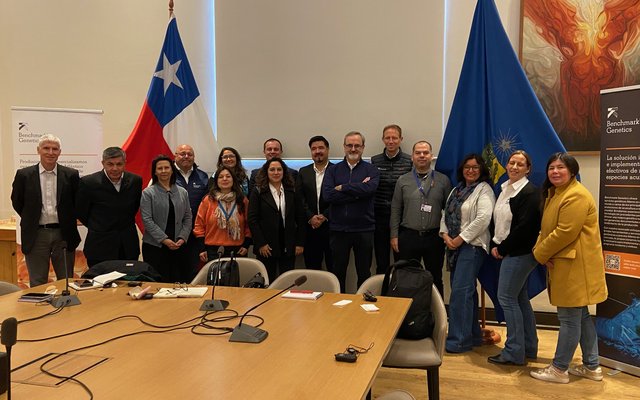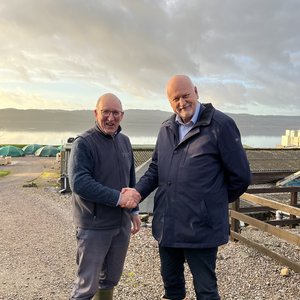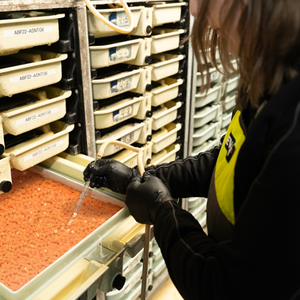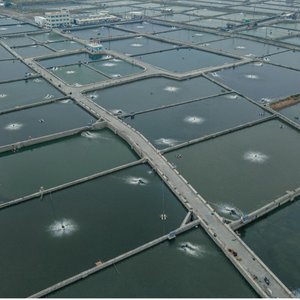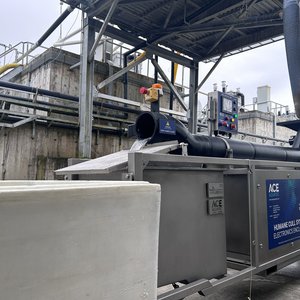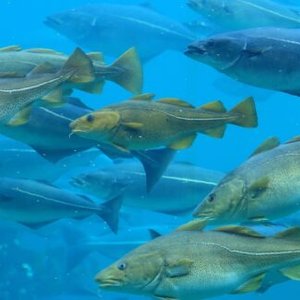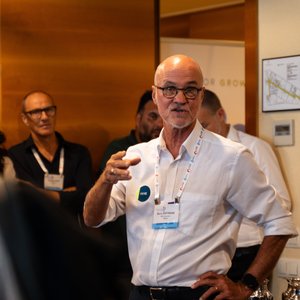A recent workshop, titled Benchmark Genetics Biotechnology and Innovation Program: Laying the Foundations for More Sustainable Aquaculture, was held at the university's main campus in Santiago, Chile, organized by Benchmark Genetics Chile in collaboration with the Faculty of Veterinary and Animal Sciences at the University of Chile (FAVET). Representatives of local authorities also attended the event. The meeting showcased the advancements and innovations the company is working on globally in genetics to contribute to a more sustainable development of global salmon farming.
The workshop
During the event, Benchmark Genetics presented its research and development programs, highlighting its global capacity to produce 490 million eggs annually. Among the milestones in the company’s history in Chile, Juan Pablo Ramírez, general manager at Benchmark Genetics Chile, noted that in 2021, the first local production of eggs was achieved; in 2022, the first delivery of organic eggs occurred; and last year, the company received Certification for Disease-Free Compartments from Sernapesca. In 2024, it aims to become a backup for the group's operations in Norway and Iceland, exporting eggs directly from Chile to various markets, including Canada.
Jean Paul Lhorente, technical manager, said that Chile currently requires between 350 and 400 million eggs annually. By 2025, the company will complete the second generation of locally cultivated and selected fish, which will have accumulated between eight and nine generations of selection for growth.
Ross Houston, director of genetics and innovation at Benchmark Genetics Global, provided a comprehensive view of the company's R&D activities, as well as new technologies in reproduction and gene editing. He explained that the company's priorities focus on genetic improvement through genomic selection, reproductive technologies, and trait development, emphasizing that genetic and genomic innovations continuously enhance the production and welfare of farmed salmon. He noted that the future challenge is achieving sterility in fish, a model that offers significant advantages: it prevents crossing with wild species, avoids early maturation, allows for a faster generational interval by not having to select for late maturation, and enables the elimination of a breeding trait to improve other key traits.
Houston indicated that three main categories of methods to achieve sterility: triploidy, inhibition of gene expression for germ cell formation in the gonads, and germ cell inhibition through gene editing. Benchmark Genetics has focused its program in Iceland to advance in this area, in collaboration with renowned research institutes. “Our focus is on large-scale diploid sterility for salmon, as well as gene editing and how to integrate it into future aquaculture breeding programs,” the expert stated.
“We are excited about the potential of gene editing. We are focusing on disease resistance because it is a relevant area. However, there is still uncertainty about when the regulatory environment will approve the application of this technology. We believe now is the time to develop an appropriate regulatory framework that allows us to benefit from all available technologies,” concluded Ross.
Eduardo Rodríguez, leader of Reproductive Technologies at Benchmark Genetics Global, explained that the company currently sells sterile eggs to Canada, certified as triploid—all female—which are verified through rigorous laboratory analyses approved in the destination market. “So far, they have been 99.8% triploid, meaning the method and the way of certifying it works well.”
Intersectoral collaboration
After the meeting, the attendees agreed on the need to establish a public-private intersectoral collaboration that includes academics and technical experts to move toward sustainable regulation in genomic editing. This work would provide input for the future Aquaculture Law.
“The goal is to promote a flexible regulatory framework for Chile, in line with current times, that allows us to respond to market needs regarding whether it opens up to the production and marketing of animals improved through genomic editing,” said José Manuel Yáñez, FAVET Dean. “Currently, there is a limiting rigidity in legislation, which leaves our country out of the game. That is why we are promoting this intersectoral work from the university, where we hope that, in addition to the public agencies present at the meeting, and other academic institutions, together with Benchmark Genetics— the company that initiated this conversation—will participate.”


